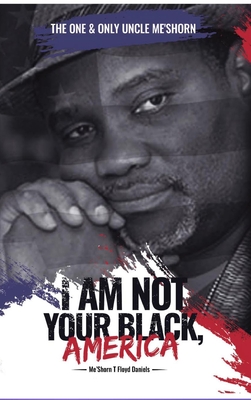Introduction:
In a recent thought-provoking episode of Russell on the Move, hosted by Kevin Fields, listeners were treated to a powerful discussion about identity and equity with author Me’Shorn T. Daniels. Daniels, the mastermind behind the book “I am Not Your Black, America,” challenged listeners to unlearn and reevaluate the color construct that has shaped society in America for centuries. In this blog post, we will delve into the key discussion points presented by Daniels and explore the significance of his work.
Challenging Historical Narratives:
Daniels began the conversation by shedding light on the historical origins of the color construct in America. He emphasized that the recognition and understanding of the past are crucial steps towards dismantling the barriers that continue to hinder the “black community.” By reframing the narrative, Daniels aims to ignite a paradigm shift in how individuals perceive themselves and others. He stresses the need to unlearn skewed history and champion a more inclusive and accurate retelling of the story.
Economic and Educational Disparities:
One of the central themes of LCCC and Russell on the Move is the movement to address the alarming economic and educational disparities faced by the black community. On this topic, Daniels emphasizes that these disparities are not innate but are the direct result of systemic barriers that have trapped generations. Daniels advocates for a comprehensive approach that involves equitable access to quality education and economic opportunities for all, irrespective of color or background.
Rethinking Identification:
Daniels urges listeners to critically reconsider how they identify themselves in contemporary America. He proposes identifying as descendants of American slaves, highlighting the historical and cultural contributions that have been systematically overlooked or undermined. By reclaiming heritage and birthrights, Daniels believes that individuals can rebuild their sense of self and contribute to building a stronger, more cohesive society.
Legislative Changes:
To address the deeply ingrained color construct, Daniels advocates for legislative changes aimed at removing the color construct from official documentation. He argues that eliminating racial categories would dismantle the systemic biases associated with them and prompt a necessary shift towards true equality. However, Daniels acknowledges that this change is just one step in a broader movement to reform societal structures and address ingrained discrimination.
Immigration and Reconnecting with Heritage:
The discussion also touched upon the challenges posed by immigration and the importance of reconnecting with one’s heritage and birthrights. Daniels encourages individuals not to lose sight of their unique ancestral narrative amid the complexity of identifying as descendants of American slaves. By embracing their roots and celebrating their cultural diversity, individuals can forge stronger alliances within and outside their communities.
Conclusion:
The conversation with Me’Shorn T. Daniels on Russell on the Move was a poetic call-to-action for America to dismantle the color construct and redefine human identity based upon contribution to American society. Daniels’ book, “I am Not Your Black, America,” challenges long-held beliefs, sparks profound reflection, and fosters conversations necessary for societal progress. By embracing equity, “unlearning” detrimental historical narratives, and advocating for legislative change, Daniels believes that a brighter future for all is within reach. As we continue Russell on the Move’s journey towards equity and empowerment, let us take inspiration from the dialogue with Me’Shorn T. Daniels and strive for a more just society where every individual can thrive socially, academically, artistically, and economically.
Click below to listen to the entire podcast:
